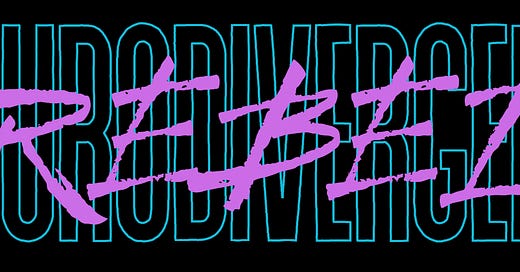Autism and Meltdowns: I am an Autistic Adult and I Still Have Meltdowns (and probably always will)
AskingAutistics - What are YOUR meltdown Triggers? Any tips for safer meltdowns?
Autistic adults can have meltdowns too. I am an Autistic adult, and I have meltdowns.
Once a meltdown starts, I can steer it; however, I cannot stop it until it has run out of energy.
For educational purposes, I'm including a video of me at the end of a meltdown, just as the worst of it has ended and I'm starting to "come out of it."
A few notes about this video:
David had permission IN ADVANCE to shoot this video because I had told him weeks prior that he should do this next time for educational purposes.
Please DO NOT EVER record or share someone's meltdown without consent. In a meltdown state, it feels like everyone, and everything is a threat. I need support and to be made to feel safe.
If my partner and I hadn't spoken about filming a meltdown in advance and they had started filming me without permission, I would have likely flipped out, escalating the breakdown and making it much worse (because I would have felt unsafe) if I didn't understand why I was being filmed.
This is a very vulnerable moment that I chose to share (but honestly almost didn't share it because I was conflicted about doing so). I know what people will say because I know what people have said every time it happens to me in front of people (which is why I often will literally run and hide when I feel a meltdown coming on).
People see me as an adult human, melting down, and expect "more" from me. "Stop being dramatic!" "Get it together!" "You're being childish!" "Faker!" My feeling unsafe makes other people feel unsafe, and they often react aggressively to this (which can cause me to match their aggression). The consequences of this escalation could be very serious, so I avoid it at all costs.
My overwhelming emotions, fear, and panic make other people uncomfortable. Never mind that I'm in agony. Let me hide that so I don't bother anyone (or be harassed for allowing the overwhelming emotions to spill out of me).
David ALSO did not shoot the worst part of my meltdown in this video.
David only got the end of my meltdown when I was already coming out of it and in a more "okay" state of mind than I had been only a few moments prior (when I was stuck in the fetal position in a ball violently crying and shaking).
A meltdown is like a volcanic eruption: a significant emotional reaction is triggered by something, often the last straw in a chain of events (or one event or change that's too big to process at that moment). Energy rises and must be used up or expelled before the meltdown ends.
Like lava spilled out of a hot volcano, I have a cooling-off period in my meltdowns where I'm "coming out of it" but still not in complete control.
In this video, I am in my cool-down phase, trying with all my might to put the breaks, breathing, and trying to ground myself as I force words out of my mouth. Though I know what I want to say, I struggle to speak.
During this cooling phase, I often struggle to speak, and I am still crying as my faculties start to return to me. Additionally, in the cool-down phase, I'm still very vulnerable to having additional meltdowns triggered.
This meltdown started because I thought I had lost another credit card (I had just lost one previously), and it was hard to get replaced while we were traveling.
The shame and frustration over being unable to hold onto a card long enough to go into the store, pay for one item, and get back to the truck, combined with the panic over the uncertain future without the card, was too much for me to bare and the emotions erupted from me.
In the back of the bus, while I curled up crying and struggling to breathe or move, David solved the card problem (driving back to the store and finding the card in the parking lot). Then, as I began to “come out of it” David remembered what we’d spoken about weeks prior, and picked up the camera to capture the following video.
CONTENT WARNING: MELTDOWN VIDEO - THIS MAY BE TRIGGERING FOR SOME VIEWERS. VIEWER DISCRETION IS ADVISED
Every Autistic Person will be different, and some Autistic People may transcend beyond meltdowns (or learn to avoid all their triggers). However, many of us will continue to have meltdowns (and other types of overloads) our entire lives.
For the first twenty-nine years of my life, I didn't know I was Autistic, but I still had meltdowns, shutdowns, and other types of overloads without the context of why or what triggered those events in me.
Having explosive emotional outbursts and episodes over things other people had little to no reaction to made me feel as if something was seriously wrong with me for most of my life.
Not understanding the triggers of those meltdowns, implosions, and outbursts meant having more overloads (of all kinds) because I didn't have context for why or what was setting me off.
Now that I know I'm Autistic, I know my triggers. I know what sets me off and what situations to avoid, especially if I'm not feeling my best.
Subscribers are able to continue reading this post, including some of my personal meltdown triggers.
Sharing is also appreciated and is a great way you can support my work.
Keep reading with a 7-day free trial
Subscribe to NeuroDivergent Rebel’s Substack to keep reading this post and get 7 days of free access to the full post archives.



